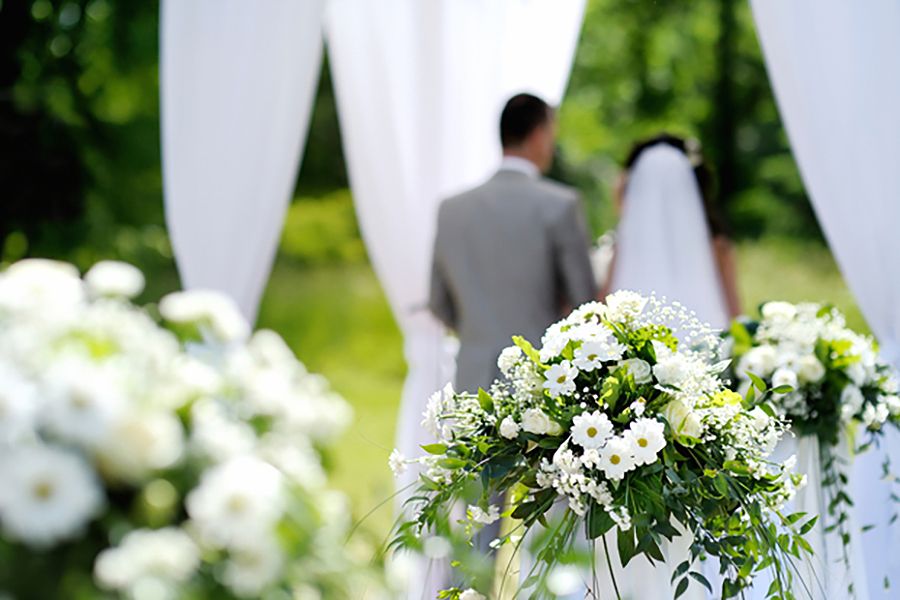How to Make Your Wedding Ceremony Meaningful

Cakes are tasty, DJs are a blast, and dinner is definitely important, but when it comes to a wedding, the most meaningful moment is the actual wedding itself – the ceremony. Happily, how you choose to orchestrate this key component of becoming husband and wife is mostly up to you.
Although rules can vary state to state (think blood tests, age minimums and waiting periods), at its most simplistic level, a marriage ceremony typically requires a marriage license, the ability to consent, witnesses and a person recognized by the state to have the authority to conduct official unions, such as a judge, pastor or rabbi.
In the context of a wedding, most ceremonies are going to include a welcome from the officiant, vows or a statement of consent and the kiss at the end, says Anja Winikka, site director for TheKnot.com. But, she notes, that’s where commonality ends.
On the traditional end of the spectrum, couples might choose to include a rumination on marriage from the officiant, readings, a ring exchange, etc. Further, if you choose to incorporate your religious affiliation, there may be other “required” ceremony elements, says Winikka, such as the breaking of the glass in a Jewish wedding or the taking of communion in a Catholic wedding mass.
According to Pat Stimac, a non-denominational minister and co-founder of Seattle-based A Heavenly Ceremony, most events she officiates range from 20 to 40 minutes, depending on the individual couple and what they wish to express. These ceremonies might involve a welcoming of the guests; a remembrance of those unable to attend or who have passed on; an honoring of parents, grandparents and mentors’ a reading or three; words about marriage that inspire and reflect the couple and more specific words regarding the couple and their love; the vows; a ring exchange; a unity celebration; closing words; the pronouncement; a kiss; and the presentation of the new husband and wife.
To give each ceremony an even more personal and unique feel, Stimac loves talking with her couples about their passions in life so that she can find ways to include them. “For example, couples who love their dogs – as so many do here in Seattle – could include their ‘fur kids’ in the procession, or include a reading such as Taylor Mali’s “’Falling in Love is Like Owning a Dog,’” Stimac says. Other great, off-the-beaten-path ideas for readings include song lyrics and movie lines. Brides or grooms who can sing or play an instrument also might enjoy performing in their own ceremony. Or, if you are both close with your parents, consider asking them to submit fun or moving marriage advice to the officiant that can then be read in place of traditional ruminations.
For an intimate feel, Winikka suggests having a friend or family member that really knows you do the officiating – American Fellowship Church, Universal Life Church, Universal Ministries and Rose Ministries are the most common ways to get ordained online. She also recommends writing your own vows. “There’s nothing more personal or unique than telling your significant other in your own words how you feel, why you love them and why you’re marrying them.”
© Brides 365